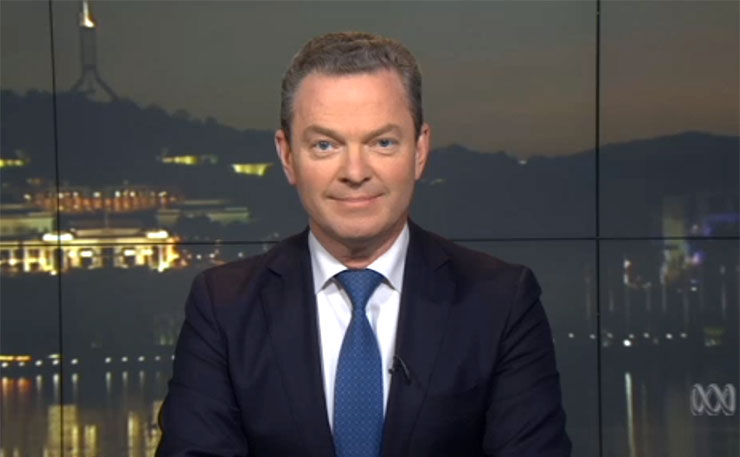It looks like university deregulation is dead. At least for now.
That’s the key message from new Education Minister Simon Birmingham, who today gave a speech shelving the unpopular university ‘reforms’ advanced by his predecessor, Christopher Pyne.
The university sector was relieved, rather than triumphant. University administrators were rather ambivalent about Christopher Pyne’s reforms. They hated his proposed funding cuts of 20 per cent per student, but they were enthusiastic about fee deregulation, which would have allowed universities to jack up tuition fees at the expense of students.
Birmingham’s intervention means that university funding will keep the status quo. University funding for 2016 will be the same as 2015 levels, plus a bit for inflation.
Given the uncertainty that has pervaded the higher education sector since the 2014 budget, this small window of predictability will be welcomed.
But it hardly solves the bigger problems in Australia’s university system, which is in trouble. Universities in Australia are struggling to come to terms with huge changes in their mission and mandate.
In 1981, less than half of Australian high school students finished grade 12. Only a minority of those who did went on to university. Now year 12 retention is above 80 per cent, and more than half of all school leavers go on tertiary study. In just a generation, universities have transformed from an elite to a mass system.
As academic and author Richard Hil has set out in considerable detail, this has imposed tremendous strains on a system that first evolved centuries ago in western Europe. Modern university is an atomised, precarious, and often quite unhappy place for many students, who are charged ever more in student fees for a qualitatively poorer educational experience. Across Australia, one in seven first-year students drops out.
It would always going to be difficult to transform universities from elite finishing schools for the upper slice of society to the post-secondary high schools they have increasingly become. But declining government funding made it harder. Government funding per student has been declining in real terms since the Howard years, albeit with some top-ups in the Rudd-Gillard years.
Universities have made up the difference by charging overseas students very high fees, and by squeezing much higher productivity out of their teaching staff. The days when a talented undergraduate might directly interact with a top professor are now long gone; the average student is taught by a casual academic employed from semester to semester.
Labor at least tried to get a grip on these challenges in office, commissioning the Bradley Review of higher education. But it never followed through on Denise Bradley’s full set of recommendations. Instead of increasing funding per student, Labor simply opened the floodgates of enrolments, allowing universities to enrol whoever they liked, but giving them the same amount of money for each enrolment. As a result, enrolments soared, but teaching quality degraded.
Having said that, Australian universities are not in crisis, as is commonly claimed. We have several universities in the top 50, and our top research universities – ANU and Melbourne – are among the best in the world. At the bottom end, our regional and suburban universities also do a fine job teaching poorer and disadvantaged students.
But universities are under cost pressures. They need more money to retain current standards, let alone to lift them. Quality doesn’t come cheap, and online courses have shown themselves to be poor substitutes for more traditional teaching methods.
The Pyne years saw this situation go backwards. In common with so many other parts of Australian public life, universities were ambushed by the 2014 budget. Pyne proposed massive cuts to university funding, offset by complete deregulation of university fees. The policy blew up into widespread public alarm, as middle-class families realised that the price of attending university would soar.
Labor made much of its claim that degrees would end up costing $100,000, but the threat to younger and regional universities, and the general destruction that fee deregulation would wreak on the university system, was arguably just as bad. Pyne twice failed to get the reforms through the Senate.
Labor’s Kim Carr is not often thought of as a star performer, but as the ALP’s Education spokesperson he has comfortably out-matched Christopher Pyne, whose many gaffes made him one of the Abbott cabinet’s many liabilities. Carr has rendered Bill Shorten fine service by ensuring that Labor continues to own the higher education space, particularly since a bizarre Greens reshuffle saw them move the incisive Lee Rhiannon out of the portfolio.
A fortnight ago, for instance, Carr released Labor’s higher education policy for the 2016 election. It didn’t receive a great amount of publicity, but it was welcomed by many in the sector, because it provided crucial new funding for university teaching.
Now Birmingham has taken the logical step, lancing the boil that was causing the Coalition so much trouble. By putting deregulation on the backburner, he can at least head off more student protests and keep a lid on simmering tensions within the sector.
But Birmingham’s announcement also means the Coalition effectively has no higher education policy at all. This leaves the government open to further attacks claiming that deregulation is simply being postponed, not ruled out altogether.
Ultimately, today’s announcement is a win for civil society in this country. Students and most academics opposed Pyne’s changes because they were deeply unfair. It was student protest and public opposition to the reforms, combined with genuine opposition from the Opposition, that encouraged the cross-benchers in the Senate to vote them down.
There’s a lesson here. Some things are worth fighting for, not just because they are important, but because if they are not fought for, they will be lost. Students and families fought for a decent system of higher education in this country. They won.
While deregulation is certainly not dead and buried, it will be much harder for a re-elected Coalition government to implement. That’s something to celebrate, amidst the wreckage of the Abbott years.
Donate To New Matilda
New Matilda is a small, independent media outlet. We survive through reader contributions, and never losing a lawsuit. If you got something from this article, giving something back helps us to continue speaking truth to power. Every little bit counts.




